|
| |
This week in: Peace & Security Publications |
IPSI | Africa | Americas | East Asia | Europe & Central Asia | Middle East | South Asia
|
|
|
|
| |
This week in Sub-Saharan Africa
|
|
|
|
| |
ETHIOPIA: Thousands of Oromo political detainees to be freed
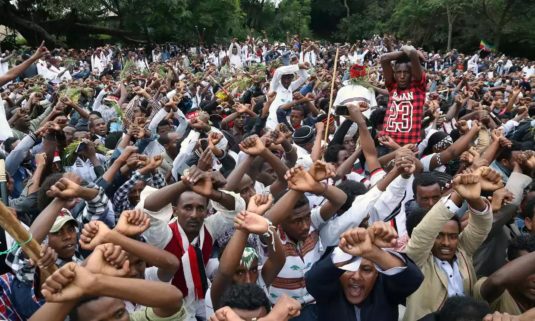
|
|
On Friday, the government announced the release of 2,345 prisoners sent to jail following the 2015 and 2016 protests in the country’s Oromia region. The move is part of government efforts to calm unrest that has lingered since mass protests broke out in the region over accusations of land grabbing. The government spokesman on Oromia affairs said the prisoners have been pardoned and would be released in a few days. There are reports that seven people, including a 10-year-old child, died in the northern town of Kobo, after security forces reportedly fired at a crowd that was gathered to protest a violent crackdown. News of the pardon came a week after the government released Oromo opposition leader Merera Gudina, and 22 other political prisoners. Security forces have arrested tens of thousands of people and killed more than 900 since the protests began. Comment: The government in Addis Ababa has long been accused by rights groups of using security concerns as an excuse to stifle dissent and media freedoms. It denies the charges. Last week, the United Nations urged Ethiopia to review the status of a “large number of people” still behind bars. (Aljazeera, UNPO, The Guardian)
|
|
|
|
|
| |
SOUTH AFRICA: Zero water by April 12
This week, Cape Town officials predicted that after years of drought, the city of over four million is facing an unprecedented disaster; unless a major rainstorm occurs, officials are predicting that on or around April 12 the city’s water supply will run dry, nine days earlier than previously expected. After that, most residents will have to stand in line at designated areas to receive rations of water. To stave off the crisis, starting February 1, Cape Town is lowering the daily allowance for residence from 87 litters down to 50 liters. The government has also implemented a controversial online water consumption map, which allows residents to check up on their neighbors’ water habits based on households’ municipal bills. Comment: The extreme water shortage follows three consecutive years of drought. The crisis has been caused by the intersection of global warming with, as some critics charge, poor planning by government officials. Cape Town would be the first metropolis in the world to run out of water. (Aljazeera, The straits times, NBC News)
|
|
|
|
|
| |
KENYA: Opposition leader sworn in as “people’s president”
| |
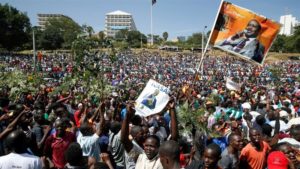
|
On Tuesday, the opposition defied authorities to go ahead with a ceremony to swear in their leader, Raila Odinga, as “people’s president” at a mass meeting in the capital, Nairobi. Many thousands of supporters gathered in the city center to hear Mr. Odinga, who heads the opposition party, National Super Alliance (NASA), take an oath of allegiance. Government lawyers have described the opposition ceremony as treason. Authorities appear to have opted for a media blackout of the event rather than deploy police to stop or disperse the meeting. In a brief speech, Odinga described a “high calling to assume the office of the people’s president of the Republic of Kenya” and stressed his acts were constitutional. There were unconfirmed reports of scattered clashes and the use of teargas nearly. Comment: The veteran politician’s symbolic challenge could lead to fresh confrontations in the country, three months after Uhuru Kenyatta won a further five-year term as president in a controversial rerun election. The opposition boycotted the poll, saying it was neither free nor fair. (New24, CNN, Aljazeera)
Researched/Written by Brian Adienge
|
|
|
|
|
| |
This week in the Americas & Caribbean
|
|
|
|
| |
COLOMBIA: Peace talks with National Liberation Army rebels suspended
On Saturday, seven police officers died and dozens of civilians were injured in Barranquilla by multiple bombings conducted by the National Liberation Army (ELN). The government and ELN were involved in formal peace talks, in which both sides agreed to a cease-fire which ended in early January. Negotiations were scheduled to resume in the coming days, but President Juan Manuel Santos suspended talks due to the lack of coherence between the ELN’s actions and statements. Comment: Reaching a deal with the ELN would put an end to all rebel activity in the region. (BBC, WaPost, Guardian)
|
|
|
|
|
| |
UNITED STATES: FEMA will not end aid to Puerto Rico
On Monday, in a published interview with National Public Radio (NPR), a Federal Emergency Management Agency (FEMA) official mistakenly reported that as of January 31 emergency food and water supplies would be discontinued to the island. According to several news sources, the statement outraged local leaders in Puerto Rico as well as in Washington, DC. As of Wednesday, FEMA had not ceased aiding the country and stated it “never intended to do so in the first place.” FEMA spokesperson William Booher responded to the report stating that “they will continue giving aid for as long as it is needed” and that the January 31 date was “just a planned day for reevaluating the situation in the region.” Comment: About 35 percent of the people in Puerto Rico are still living without power. FEMA has given USD 1.6 billion in food and more than USD 361 million in water since the hurricane devastated the region. (NBC, NPR, NYTimes, Hill)
|
|
|
|
|
| |
Regional: EU closes in on trade deal with numerous Latin American Countries
On Tuesday, the European Union closed in on a free-trade, trade deal with Argentina, Brazil, Paraguay, and Uruguay. These talks have been open for almost two decades. Experts say Trump’s “America first” anti-globalization policies are giving the EU the push it needs to quickly finalize negotiations. The deal hinges on the willingness of Europe to agree to buy Latin American beef at low tariff levels; if agreed upon the EU will drop tariffs on their leading exports, such as motor vehicles and other machines. Comment: With elections quickly approaching in Latin America and European elections in 2018, leaders are attempting to rush this deal to avoid potential momentum loss as governmental power shifts. (Bloomberg, EUObserver, Politico)
Researched/Written by Connor Murnane
|
|
|
|
|
| |
This week in East Asia & Pacific
|
|
|
|
| |
CHINA: Government denies claim that it bugged African Union Headquarters
On Monday, China and the African Union (AU) both dismissed a report that China had bugged the AU headquarters in Addis Ababa and had been transferring data every night for five years to Chinese IT servers. The building was completely funded and built by China in 2012, and the report claims that after a hack was discovered last year, hidden microphones were found in the building; it also reported that China spied through the computer systems they placed in the building. AU spokeswoman, Ebba Kalondo, and China’s ambassador to the AU, Kuang Weilin, both described the report as ridiculous and described positive bilateral relations. Comment: Weilin stated that “it will create problems for China-Africa relations.” China’s USD 200 million investment in the headquarters is symbolic of Chinese influence in Africa. (The Guardian, Reuters, BBC, CNN)
Researched/Written by Daniel Boerger
|
|
|
|
|
| |
JAPAN: Women sues the government over forced sterilization
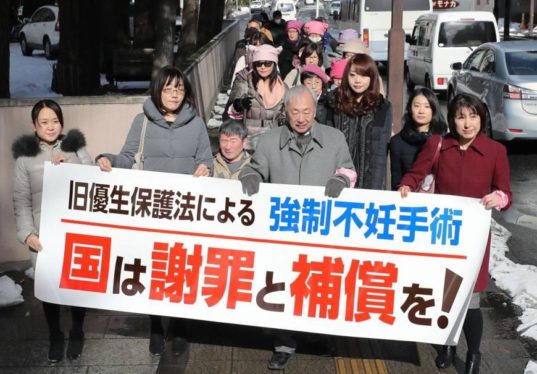
|
|
On Tuesday, a 60-year old Japanese woman filed a lawsuit against the government for forcibly sterilizing her when she was 15 years-old and is asking for approximately USD 101,000 in compensation for government violation of her human rights. In 1948, the government passed the eugenics protection law, which allowed it to sterilize people due to mental, cognitive, or genetic illnesses without consent. From 1948 until 1996, the government sterilized 25,000 people, and approximately 16,500 of them are believed to have received the surgery without giving consent. The women, who chose to not be named, is the first of those affected to sue the government. Comment: In 2001, a court ruled that the law was unconstitutional and should have been withdrawn in the 1950s due to the availability of multi-drug therapies. The government issued a formal apology soon after and promised not to challenge people affected by the law who ask for compensation. (The Japan Times, The Guardian, Reuters)
Researched/Written by Pamela Mhute
|
|
|
|
|
| |
MYANMAR Evidence of mass Rohingya graves uncovered in Myanmar
On Thursday, the Associated Press reported that scores of dead Rohnigya villagers were found in five mass graves. The killings are believed to have been conducted on August 27 with survivors reporting that soldiers attempted to cover up the atrocities by burying the bodies in shallow graves that would later be washed away with heavy rainfall. Estimates of the death toll could be as high as 400. UN Special Envoy on Human Rights in Myanmar, Yanghee Lee, stated that these military operations have “the hallmarks of a genocide.” Comment: Following a 1962 military coup in Myanmar, laws were altered and the Rohingya were no longer recognized as one of the 135 ethnic groups that comprised the country. Displaced Rohingya fleeing from persecution in Myanmar are inundating neighboring countries. (ABC, Aljazeera, NPC)
Researched/Written by Connor Murnane
|
|
|
|
|
| |
This week in Europe & Central Asia
|
|
|
|
| |
ALBANIA: Thousands of protestors call for the government to resign amidst alleged corruption
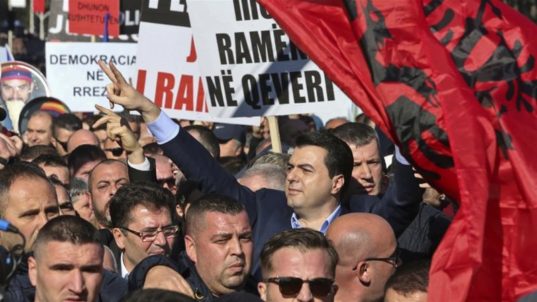
|
|
On Saturday, 10,000 protestors peacefully rallied in Tirana, Albania’s capital, calling for the resignation of Prime Minister Edi Rama and his socialist government because of his cabinet’s alleged association with corruption and organized crime regarding the illegal trade of cannabis. The protestors mostly consisted of the opposition party (the center-right Democratic party). Lulzim Basha, the Democratic Party leader, said he wanted the government replaced to clear the way for Albania to become a full member of the EU. In response to the protests, Rama’s government has claimed that it is pursuing successful justice reform against crime and corruption. The government has also claimed that the opposition protestors were attempting to derail accession discussions with the EU by creating a crisis. Comment: Rama’s Socialist party won a second term in parliament last June and has denied connections to illegal trade of cannabis. Albania, one of the poorest countries in Europe, became a candidate for EU, and talks are planned soon with Brussels. (Albanian News 1, 2, Deutsche Welle, AP, Al Jazeera)
|
|
|
|
|
| |
AUSTRIA/HUNGARY: Austrian chancellor and Hungary’s prime minister jointly speak out against migrant quotas
On Tuesday, Austrian Chancellor Sebastian Kurz spoke together with Hungarian Prime Minister Viktor Orban at a joint press conference to announce their position against EU migrant quotas and to promote the strengthening of borders. Hungary is a member of the Visegrad Group, including Poland, Slovakia, and the Czech Republic, which has often taken a tougher stance on refugee policies than other EU states. Kurz and Orban represent conservative parties, and plan to work together to fulfill campaign promises to end illegal immigration and refugee relocation to increase security. Comment: After Kurz’s party won elections in October, Austria is now the only European country dominated by a far-right wing party. (Deutsche Welle, BBC, AP, Reuters)
|
|
|
|
|
| |
RUSSIA: Multiple protests take place across Russia to boycott upcoming presidential election
On Saturday, rallies took place across Russia following Aleksei Navalny’s call to boycott the presidential elections on March 18. Navalny was one of the major opposition leaders in the upcoming presidential election until he was arrested and barred from running in the election for what he claims are politically motivated reasons. After being barred from running, he called for supporters to boycott the election on his blog. Rallies took place in around 100 cities with roughly 1,000 protesters in Moscow and were generally peaceful. Navalny and his staff were a few of the roughly 250 people briefly detained in Moscow, but Navalny was released a few hours later. Comment: Putin has been in power since 1999 and is pursuing his fourth six-year Presidential term in the upcoming election. (The Moscow Times, Radio Free Europe/Radio Liberty 1, 2, Al Jazeera, NPR)
Researched/Written by Daniel Boerger
|
|
|
|
|
| |
This week in the Middle East & North Africa
|
|
|
|
| |
EGYPT: Opposition calls for boycott of presidential elections
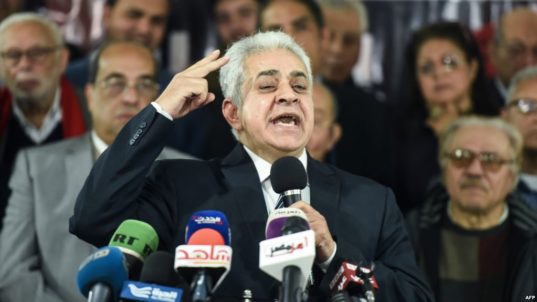
|
|
On Tuesday, eight Egyptian opposition political parties and 180 political leaders launched a campaign to boycott the planned Egyptian elections in March. In a press conference, they asked Egyptian voters to “Stay at home” as a way express dissatisfaction about the regime’s perceived unfairness in running the election processes. Several candidates – including human rights defender Khaled Ali and former Prime Minister and commander of Egypt’s air forces Ahmed Shafik – had withdrawn their presidential propositions last week citing pressure from the Egyptian regime. Comment: Egypt’s President Al Sisi reacted to the boycott by saying “Be warned, What happened seven or eight years ago, will not happen again in Egypt,” referring to mass protests in Egypt’s 2011 uprising. Human rights defenders are concerned that the government will take more oppressive measures; the regime has detrained over 40,000 political prisoners since 2013. (Aljazeera, Africa news, Reuters)
|
|
|
|
|
| |
SAUDI ARABIA: Government releases most detainees after reaching settlements
On Monday, The Saudi Arabian government led by Crown Prince Mohmmed bin Salman released most of the 381 Princes, Businessmen, and former officials who were arrested in November 2017 in Riyadh as part of a crackdown on corruption. A higher commission reportedly investigated the detainees and then negotiated settlements with them. According to the Saudi attorney general statement on Tuesday, Saudi Arabia’s government seized of more than USD 100 billion through financial settlements with businessmen and officials detained in the crackdown. Comment: The Saudi government has repeatedly refused to disclose details of the charges against detainees or their settlements. Political observers have raised suspicions that economic factors might have motivated the crackdown and subsequent settlements. Saudi foreign currency reserves have plummeted due to the collapse of oil prices and the cost of the war in Yemen led by Saudi Arabia. (Aljazeera, Reuters, Washington Post)
|
|
|
|
|
| |
SYRIA: Sochi Peace talks end in Russia with careful hopes
On Tuesday, a Russian-sponsored peace conference on Syria held in Sochi attracted 1,500 Syrian representatives, while the primary Syrian opposition groups refused to participate. The opposition argued that the conference represented the interests of Moscow and Damascus only. UN Special Envoy Staffan de Mistura attended the conference despite criticism by the opposition groups, stating that “The Sochi conference statement handed back control of the constitution committee to the UN, both regarding its composition, selection criteria, mandate and terms of reference.” Comment: Analysts state that if the Syrian opposition accepts the suggested constitutional committee plan under the auspices of the UN, the possibility of a new constitution for the divided country is real. The civil war in Syria is in its seventh year, resulting in over a half-million deaths. (Aljazeera, Middle east monitor, The Guardian)
Researched/Written by Mohamed Ismail
|
|
|
|
|
| |
AFGHANISTAN: Taliban claims ambulance bomb attack in Kabul
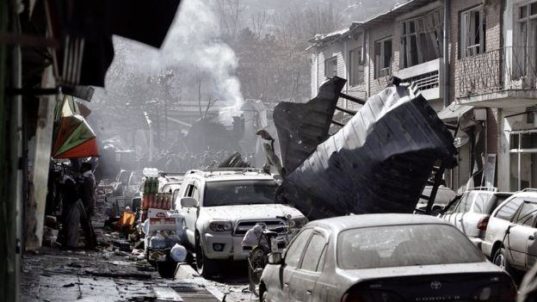
|
|
On Saturday, a bomb hidden in an ambulance killed 103 people and wounded over 200 in the capital, Kabul. A sole attacker claimed to be transferring a patient to a hospital to get past a security checkpoint. The attacker targeted Sadarat square; a heavily-guarded and busy area near a hospital, a police station, the office of the high peace council, the office of the European Union delegation, several embassies, and the old ministry of interior building. The Taliban claimed responsibility for the attack, which took place exactly one week after its deadly attack on the Kabul Intercontinental Hotel. A representative for the Taliban stated that the attack was in response to U.S. President Trump’s new strategy in Afghanistan. Comment: Kabul Police have arrested someone they suspect was the driver of the ambulance. A separate but relevant attack claimed by the Islamic State took place on Monday near one of the country’s main military academies in Kabul resulting in the death of 11 soldiers; last week, the Islamic State conducted an attack on the office of the Save the Children charity. (Afghanistan Times 1, 2, Aljazeera, The Guardian, Reuters 1, 2)
|
|
|
|
|
| |
INDIA: The 2018 Economic Survey’s focus on gender
| |
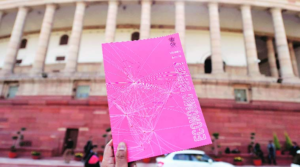
|
On Monday, the government released its annual economic survey, which revealed that more than two million women disappear every year throughout the country and more than 63 million women are “missing” due to sex-selective abortions, disease, neglect, or nutritional deficiency. Based on birth rates and the gender of last-born children, the report also revealed that more than 21 million girls are unwanted by their families. The chief economic adviser to the Ministry of Finance and author of the report points out the phenomenon of “son preference” as a cause of the “unwanted” girls. Comment: The birth of a son is frequently celebrated, while the birth of a daughter can be a difficult time as parents worry about the debts they will need to take on to pay for marriage dowries. This year, the cover of the report is pink to show commitment towards women’s empowerment and a desire to address gender equality. (Dawn, The Indian Express, Aljazeera, The Guardian)
|
|
|
|
|
| |
MALDIVES: Opposition files case against President
On Sunday, former President Mohamed Nasheed, announced that he along with three other opposition leaders from the Maldivan Democratic Party filed a case to the Supreme Court to temporarily remove and investigate current President Abdulla Yameen on allegations of corruption and theft. The case was filed after attempts to remove President Yameen through a parliament vote failed. The opposition alleges that parliament has not been functioning since the military stormed the building last year to block the impeachment of the parliament speaker who is a key ally of President Yameen. On Monday, President Yameen dismissed the allegations and stated that the opposition is seeking to overthrow a legitimate government. The Supreme Court has yet to comment on any planned actions. Comment: President Yameen took office in 2013 after winning a controversial run-off election against former President Nasheed. Several opposition leaders have either been jailed or gone into exile in the Maldives, including former President Nasheed who was sentenced to 13 years in prison in 2015, but granted prison leave in 2016 for medical treatment in London where he subsequently received political asylum. (Maldives Independent, The Nation, Aljazeera)
Researched/Written by Pamela Mhute
|
|
|

|
|